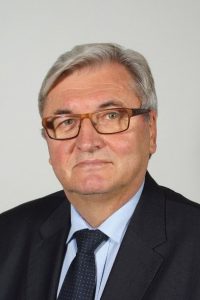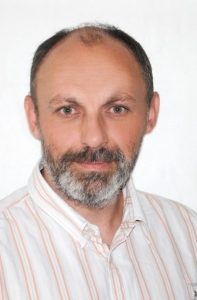Dear readers,
We are very close to the end of ERAdiate project at the University of Žilina (UNIZA). This preface is not intended to evaluate the project success, rather it shares some thoughts after five years of the project implementation.
The idea about preparation of the ERAdiate project was born more than six years ago. The European Commission (EC) was establishing a new widening instrument “ERA CHAIR” at that time. Its main goal was to unlock research potential of institutions through creating highly professional international team led by experienced expert and manager – ERA CHAIR holder. The Commission opened the pilot call for the ERA CHAIR project proposals in the last phase of FP7.
We felt that it might be a great challenge and very good opportunity for the University of Žilina to increase its international visibility and competitiveness especially within the European Research Area. The main idea was to build on successful projects in the area of transportation. Especially, Intelligent Transport Systems (ITS) as an interdisciplinary area connecting transport, information and communication technologies, and society was found very perspective. History and legacy of UNIZA, modern research infrastructure acquired especially from the European Structural Funds during previous programming period, human resources and competences as well as regional support and EU priorities were the founding stones of the ERAdiate project. The goal was to strengthen research and innovation activities in the ITS field through elevated international recognition of UNIZA in the H2020 program with the help of outstanding researchers from abroad.
The ERAdiate project was granted in 2014 and funded by the EC as one of 11 selected Pilot ERA Chair projects out of 111 submitted proposals. Its 5-year implementation officially started on 7 July 2014. The initial happiness and enthusiasm turned into very difficult work with many unknowns and degrees of freedom. It should be noted that until that time the University of Žilina had not had so much experience with coordination and implementation of such projects. Missing competences, regulations and support were the main challenges during the implementation phase in this sense. The first tasks were connected to the recruitment of the ERA Chair holder and the ERA chair team. Proactivity and hard work of the project implementation team and strong involvement of the university management were the key elements for the success. It is worth mentioning that Žilina might not be perceived as so attractive as larger cities in Slovakia and still has a way ahead to be fully prepared to host experienced foreign researchers with families. Even integration of foreigners into the university environment was not so easy. We would like to express our sincere gratitude to the Slovak Academic Information Agency (SAIA) at this place for their great support and help.
A powerful international team of researchers in ITS was established at the University of Žilina within the ERAdiate project. Strong and wide competences, excellent knowledges, high international recognition and international networking are the main strengths of the team. Their main mission lays in preparation and implementation of international research and innovation projects and realisation of research and development activities with high added value. They have already made a significant footprint in this sense. We wish to express our sincere gratitude to the ERAChair holder Prof. Tatiana Kováčiková and also to all the team members for their hard work that brings excellent results. Moreover, our special gratitude is addressed to all foreign team members who moved to Žilina, joined their forces with excellent local researchers and contributed to internationalisation of UNIZA and ERAdiate achievements. Thanks to the effort of all the ERA chair team members and all colleagues participating at the project implementation, the ERAdiate project is considered also by EC as very successful.
We would like to thank the management of University of Žilina and especially to the rector for creating necessary conditions to sustain this team of experts in ITS at the university. We believe that this team will obtain new power for attracting public financial resources within European funding schemes for enhancing research and innovation activities in close collaboration with faculties and departments of our university. We also believe that this team will be an important catalyst for the further development of our university through new highly evaluated publications.
Further development of quality, increasing of competitiveness, enhancing visibility and international recognition of the University of Žilina are the main mission of the ERAdiate team for the future. We wish this mission to continue to be very successful and for the benefit of the whole university and the region of Žilina.
Prof. Milan Dado and prof. Ladislav Janoušek


